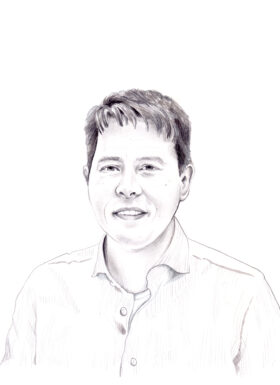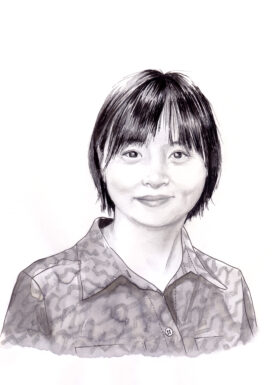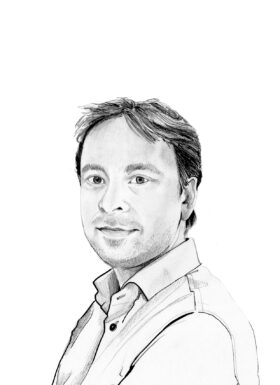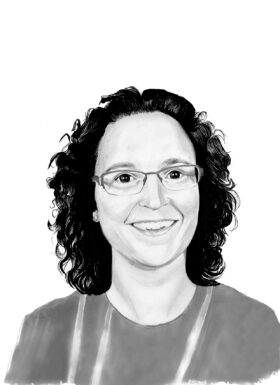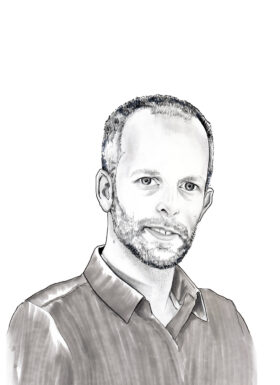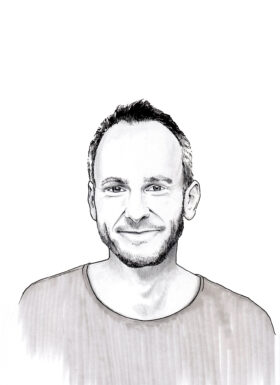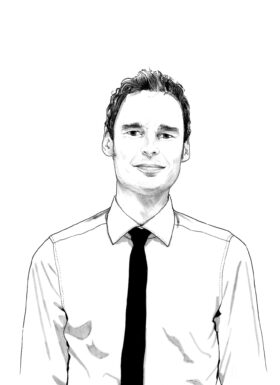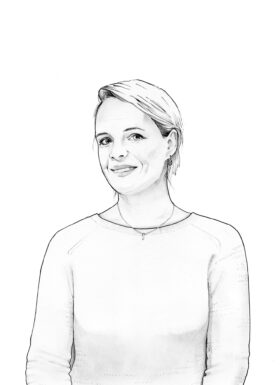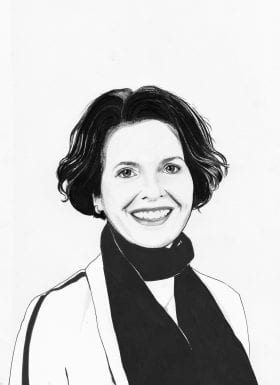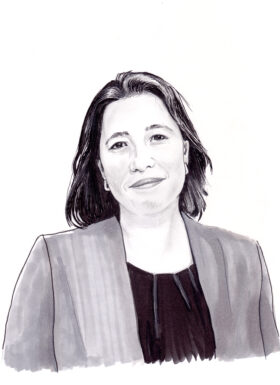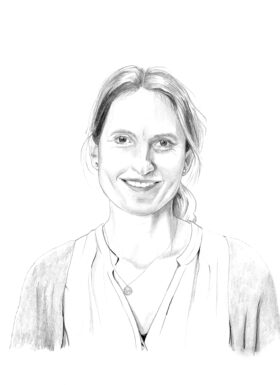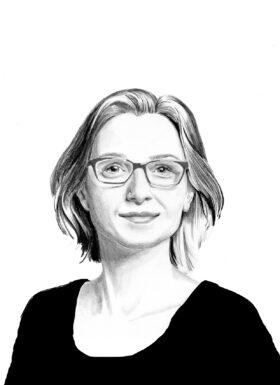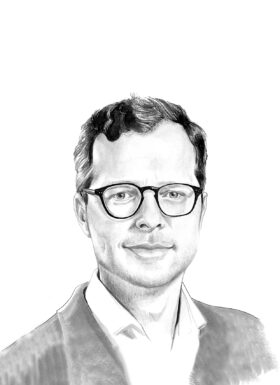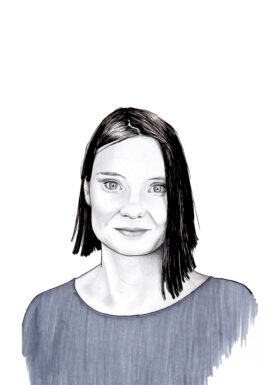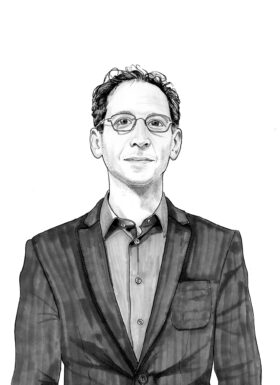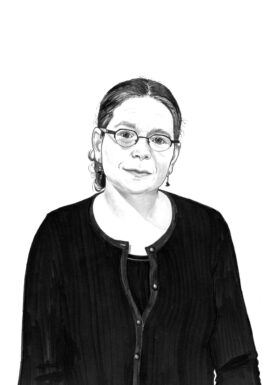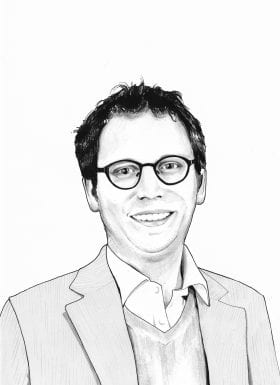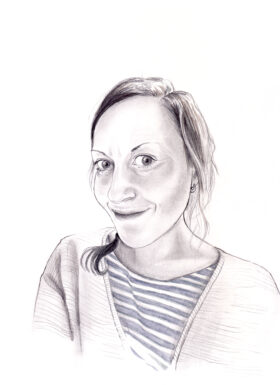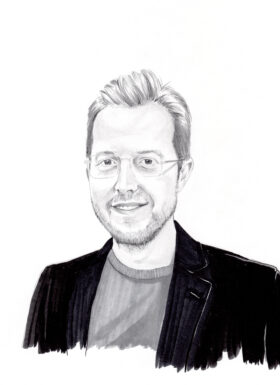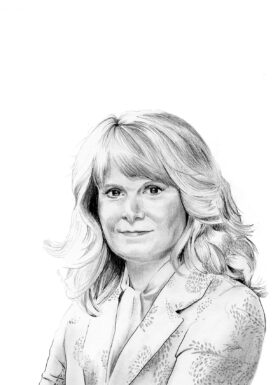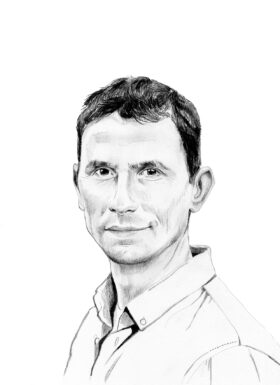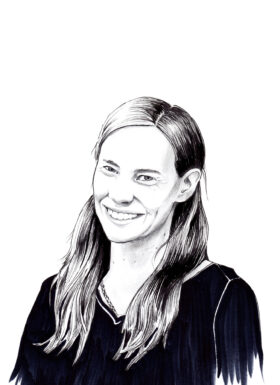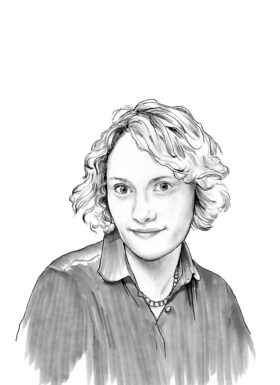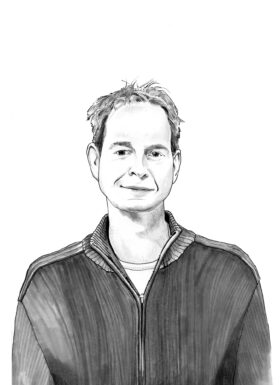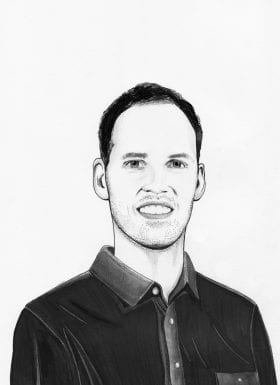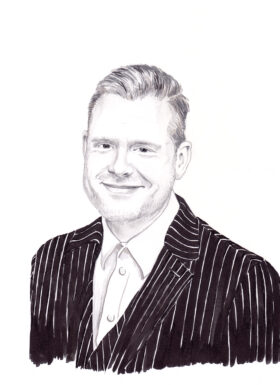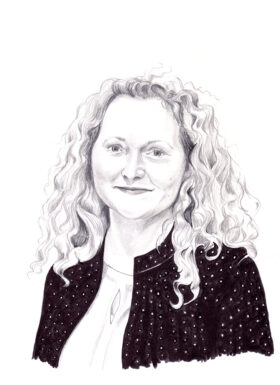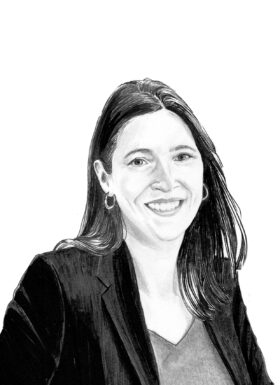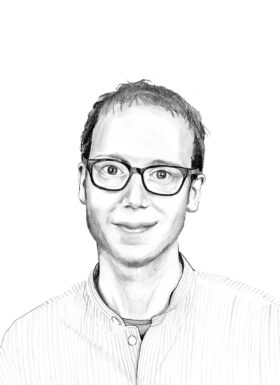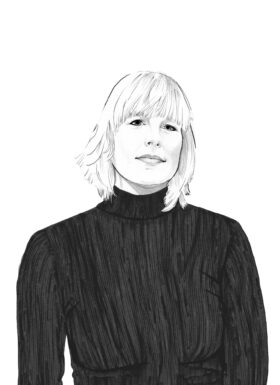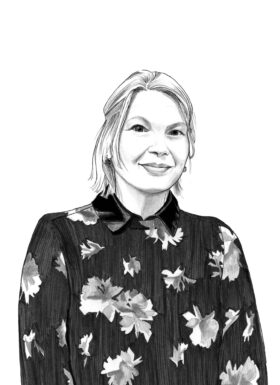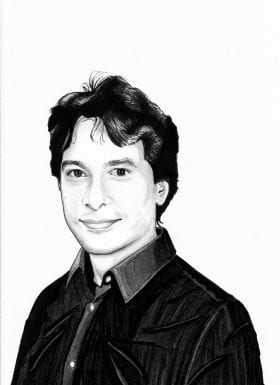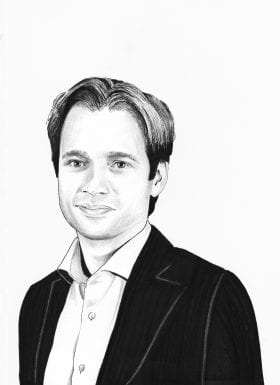-
Ammodo Science
Award for groundbreaking research2024 -
Ammodo Science Award
The Ammodo Science Award for groundbreaking research is intended to stimulate potentially groundbreaking research. Such research is usually the result of team work, and for that reason this Award is for research being carried out by a group of researchers working together, and is intended to recognise the contribution of every member of the group. The Award is presented every two years in four scientific domains: Biomedical Sciences, Humanities, Natural Sciences and Social Sciences.
-
Nomination & Selection
Each edition, the Ammodo Science Award for groundbreaking research includes a cash prize of 1,600,000 euros for each of the science domains Natural Sciences and Biomedical Sciences and a cash prize of 800,000 euros for each of the science domains Humanities and Social Sciences. The rectors of the fourteen Dutch universities affiliated to Universities of The Netherlands (UNL) may nominate a maximum of one research project per scientific domain.
-
Winners
The Ammodo Science Award for groundbreaking research focuses on potentially groundbreaking research and ensures that all researchers involved in the winning project are recognised and rewarded.
Biomedical Sciences
Hugo Snippert Laureate 2023
Hugo Snippert uses microscopy and molecular genetics to understand how it is that there is a huge diversity of tumour cells and what the consequences of this are. This knowledge helps towards the tailoring of individual cancer therapies.
Read moreJingyuan Fu Laureate 2023
Combining insights from genetics, microbiology and bioinformatics, Jingyuan Fu investigates the gut microbiome in relation to disease and health. She particularly focuses on complex diseases such as obesity and cardiovascular disease.
Read moreLouis Vermeulen Laureate 2021
Louis Vermeulen studies how derailments in the genetic material of stem cells can cause colon cancer. In doing so, he focuses specifically on the earliest development of tumors. He combines biochemistry and genetics with mathematical and physical models to map the dynamics of stem cells. With his innovative approach, he has made a major contribution to fundamental concepts within molecular oncology.
Read moreAnnemieke Aartsma-Rus Laureate 2021
Annemieke Aartsma-Rus has made an important contribution to research in Duchenne muscular dystrophy. Patients with this serious hereditary muscle disease lack the protein dystrophin, because the gene code for dystrophin is unreadable. Thanks in part to the fundamental pioneering work of Aartsma-Rus, an exon skipping therapy is now available in the USA and Japan that can make the genetic code readable again. This can slow down disease progression for Duchenne patients.
Read moreTeun Bousema Laureate 2019
Teun Bousema unravels the life cycle of Plasmodium falciparum, a parasite carried by mosquitoes that causes malaria. He is particularly interested in how a parasite from an infected human is then reintroduced to a new mosquito, and it was Bousema who discovered, among other things, that some people have an immune reaction that prevents this step from happening.
Read moreJacco van Rheenen Laureate 2019
Jacco van Rheenen developed a groundbreaking form of microscopy, allowing individual cells to be tracked for weeks in a living organism. This new form of research provides valuable information about the behaviour of, and the interaction between, cells. For example, he was the first person to film the process of metastatic cancer.
Read moreJeroen Geurts Laureate 2017
Jeroen Geurts was a pioneer in tracking difficult to detect abnormalities in the brains of MS patients. In the course of this work he came up with a new theory about the cause of MS, one which fundamentally differs from the theory that most of his colleagues have adhered to for many years.
Read moreEva van Rooij Laureate 2017
Eva van Rooij was the first person to discover that microRNA molecules, components of living cells which have only recently been discovered, play a role in heart diseases. She is now investigating other molecular mechanisms that affect our cardiac cells. Is it possible to influence these so as to limit damage to such cells or even reverse it?
Read moreCaroline Klaver Laureate 2015
Eye-diseases are rapidly becoming more significant: there are already more than 300,000 blind and visually impaired people in the Netherlands. Due to the aging population this number will increase explosively in the coming years. Caroline Klaver is a scientific researcher and ophthalmologist, and a driving force behind research into the root causes of some of the most common eye problems.
Read moreThijn Brummelkamp Laureate 2015
Thijn Brummelkamp is an energetic, critical and entrepreneurial scientist researching the function of each of the approximately 25,000 genes in the human body. He began by developing a way to turn off each of these genes one by one. Then he invented an even smarter method to do the same with a number of genes at the same time.
Read moreHumanities
Tazuko van Berkel Laureate 2023
Tazuko van Berkel researches self-image, humanity, and worldview in classical Greek society. She is currently focusing on economic thinking in ancient Greece.
Read moreMerel Keijzer Laureate 2023
Merel Keijzer investigates how learning a new language contributes to healthy ageing.
Read moreLisa Herzog Laureate 2021
Lisa Herzog analyses how moral and democratic norms can play a greater role in our economic system. What does it mean to act morally when employees feel like small cogs in the wheel of a large organisation? Herzog explores socially relevant issues such as these, always looking at the economic system from a philosophical perspective.
Read moreChristian Lange Laureate 2021
Christian Lange studies classical Arabic and Persian literature and is a pioneer in the field of Arabic digital humanities. His innovative analysis of digitized historical texts has yielded new insights, including into how Islamic criminal law was actually applied and how the five senses were understood throughout the centuries in different intellectual Islamic traditions. Lange's research provides a multicoloured picture of the rich Islamic civilization.
Read moreNadine Akkerman Laureate 2019
Nadine Akkerman has described in unprecedented detail the letter correspondence of Elizabeth Stuart, a distant ancestor of Queen Elizabeth. With her innovative research methods, such as the use of 3D X-ray scanners to read unopened letters, she is a forerunner in discovering the role of women in the politics and espionage of the seventeenth century.
Read moreEwout Frankema Laureate 2019
Ewout Frankema studies the historical roots of global inequality between the poor and the rich. This inequality grew dramatically between 1750 and 1990, and since then it has hardly reduced at all. In his integrated historical approach, he combines research into the ecological and geographical conditions in which rural societies develop with the economic, political and social relations which are shaped by mankind.
Read moreOlivier Hekster Laureate 2017
Olivier Hekster revisits the labelling of Roman Emperors such as Nero, Caligula and Commodus as ‘mad’ by looking at their use of the mass-media of antiquity: effigies on coins, statues and inscriptions on buildings. How did these Emperors attempt to establish their power over their vast empire using such communications?
Read moreAlicia Montoya Laureate 2017
Through studying 18th-century library sales catalogues, Alicia Montoya discovered that at a time when the Enlightenment changed thinking in Europe, religious books were still the biggest sellers. She questions what the impact of the philosophical transformation was amongst the wider population, outside the small circle of the intellectual elite. Has the hegemony of knowledge and reason been overstated?
Read moreBarteld Kooi Laureate 2015
Philosopher Barteld Kooi combines almost impenetrable abstract information science with everyday applications such as card games and the National Science Quiz. His work focuses on transcribing complex information problems into mathematical formulas. Which logical strategy in a game gives the best outcome? And what happens if in addition to logic probability also comes into play?
Read moreAsifa Majid Laureate 2015
Why are we so bad at describing what we smell? Why do we have words for colours but not for scents? Have we lost that capability in evolution? Or is it due to our upbringing? Asifa Majid undertakes innovative fieldwork among various cultures and peoples to find new answers to questions about connections between brains, language and culture.
Read moreNatural Sciences
Anja Spang Laureate 2023
Anja Spang’s field of research is the special role that various micro-organisms such as archaea have played in major evolutionary changes, including the origin of eukaryotes to which humans also belong.
Read moreStan Brouns Laureate 2023
Stan Brouns is engaged in fundamental research into the battle between microbes and viruses. In particular, he studies the functioning of bacterial defence systems at the molecular and cellular level.
Read morePatricia Dankers Laureate 2021
Patricia Dankers designs, synthesizes, and investigates synthetic biomaterials that can control, mimic or even surpass complex biological processes in the human body. Using intelligent chemistry ageing or damaged tissue can be repaired. It is part due to her fundamental research that heart valves and vascular grafts made of synthetic biodegradable biomaterials exist, as well as synthetic hydrogels for the culture of stem cells.
Read moreWalter Immerzeel Laureate 2021
Walter Immerzeel researches climate change in mountainous regions in Asia and its consequences for the availability of water for the millions of people living downstream. Immerzeel was the first to map the water cycle in the high mountains of the Himalayas. Over the next few years, he aims to understand thoroughly how natural disasters in mountain areas are related to their location and extreme weather, focusing on landslides, avalanches and glacial lakes.
Read moreToby Kiers Laureate 2019
Toby Kiers is interested in the interaction between plants and micro-organisms in the soil. An active trade in nutrients takes place between roots and fungi which can be described using economic theory that is actually meant for human markets. Her original approach provides new insights into the evolution of societies in the natural world.
Read moreStephanie Wehner Laureate 2019
Stephanie Wehner is working on a fundamental challenge: how entanglement can be created over long distances in order to then make a quantum internet possible. Entanglement is a central concept in quantum mechanics, enabling safe communication and super-fast coordination. She now wants to realise this in the planned quantum network around Delft.
Read moreAppy Sluijs Laureate 2017
Appy Sluijs discovered that 56 million years ago, due to a chain-reaction in the oceans and the atmosphere, there was a rise in the greenhouse effect on the Earth. Palm trees grew at the poles and the Arctic Ocean became as warm as a subtropical swimming pool. Could something similar happen again?
Read moreGuido van der Werf Laureate 2017
Guido van der Werf researches the amount of greenhouse gases that are entering the atmosphere because of the burning of forests, grasslands and peat bogs. With the help of models, satellite photos and drones he charts the contributions of burning, deforestation and the expansion of agricultural land on the greenhouse effect.
Read moreRonald Hanson Laureate 2015
In the legendary science fiction film Star Trek Captain Kirk is teleported home from far away in the universe by his chief engineer "Scotty". Physicists, including Ronald Hanson, have been trying to do something vaguely similar. "Quantum teleportation," is an experiment by which information is transferred without the use of sound, light or any other form of energy.
Read moreArwen Deuss Laureate 2015
Under a thin hard crust planet Earth is a sphere within which liquid rock slowly flows around. But inside the flowing mass a hard globe has been discovered. It was suspected that such a thing existed but the evidence for it was only delivered when Arwen Deuss succeeded in picking up and analysing weak but characteristic seismic waves.
Read moreSocial Sciences
Daniël Lakens Laureate 2023
Daniël Lakens studies how scientists conduct research, with the aim of increasing the reliability and efficiency of social science research.
Read moreTatiana Filatova Laureate 2023
Tatiana Filatova carries out research into the complex dynamics of socio-economic systems and climate change, seeking, among other things, to predict societies' responses to different climate scenarios.
Read moreRivke Jaffe Laureate 2021
Rivke Jaffe conducts research on urban space and everyday urban life. She has published on topics including crime and citizenship in Jamaica, the popular culture of illegality, and public-private security arrangements. Jaffe explores how technologies that are supposed to lead to increased security - such as guns, barbed wire, cameras and algorithms, but also animals such as police dogs - can simultaneously reproduce or increase social inequality.
Read moreFloris de Lange Laureate 2021
Floris de Lange studies how human perception arises from neurobiological processes in the brain. By measuring brain activity very precisely, he determines how information "flows" through the brain. Among other things, he has shown that our brain works like a prediction machine, actively using everything it learns to predict the future. Recently, De Lange has been studying why curiosity and surprise are important to the brain.
Read moreRoshan Cools Laureate 2017
Roshan Cools discovered that medicines which affect our brains do not always have the same effect: a substance that increases concentration in a person’s brain, can actually reduce the flexibility of that brain. For someone else the effects may be the opposite. Cools is searching for the brain mechanisms behind something that has preoccupied philosophers throughout the ages: human will power.
Read moreEveline Crone Laureate 2017
Eveline Crone discovered that not every part of the human brain develops at the same time. In puberty brain centers determining emotions develop more quickly than those which control rational decision making. This helps explain unrestrained, irresponsible and risky adolescent behaviour. How does the adolescent brain use this turbulent phase to learn to take creative but balanced decisions?
Read moreSerge Dumoulin Laureate 2015
Which nerves connect our senses with our cerebral cortex? How do our brains become conscious of sensory stimuli? And how does that ultimately result in an understanding of what is happening around us? These are the kind of questions that Serge Dumoulin is engaged in, and which put him on the trail of a congenital abacus in our brain.
Read moreFrank van Tubergen Laureate 2015
Why do we often choose friends and partners with the same ethnic background? What is the impact of this segregation on social opportunities? Why is America's income inequality much greater than that in Europe? These are the very topical questions that fascinate Frank van Tubergen and for which he seeks scientific and not ideological answers.
Read more